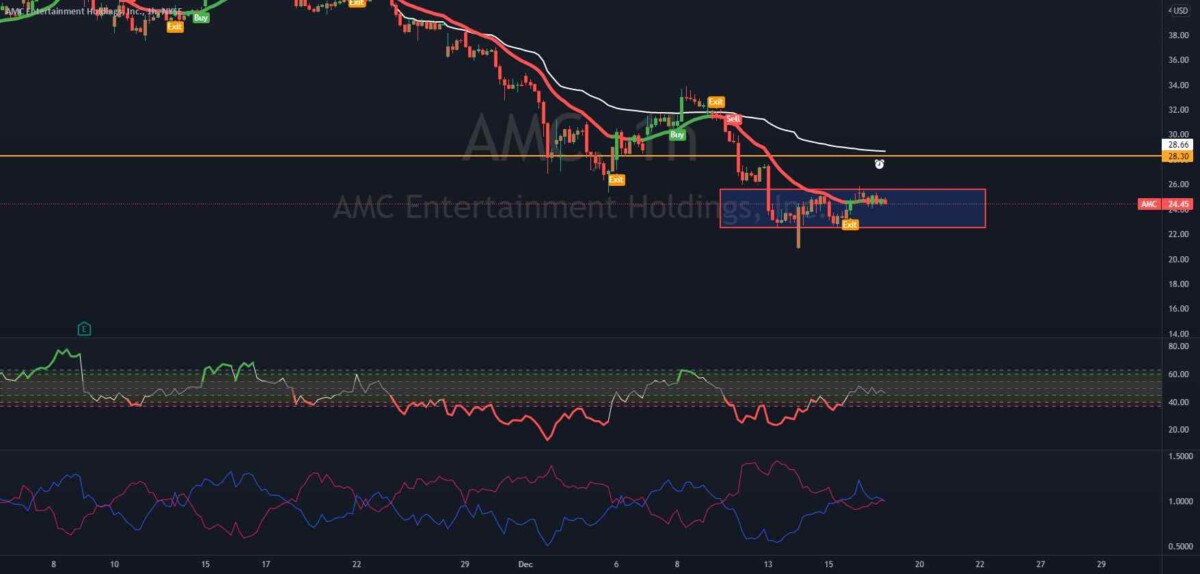Introduction
Insider trading at Asset Management Companies (AMCs) has been the subject of several high-profile scandals in the financial world in recent years. These riveting stories show how certain people in the mutual fund industry used insider knowledge to benefit themselves at the expense of other investors and industry players. An increased emphasis on strengthening the regulatory system has been reignited due to the confluence of legislative changes, legal challenges, and the wider ramifications of these insider trading occurrences. The purpose of this investigation is to clarify the ramifications, takeaways, and possible enhancements required to strengthen the mutual fund industry’s integrity by deconstructing the intricacies of AMC insider trading.
Gaps In The Old System Of Regulations
The Irregularities And Definition Of Insider Trading
The term “insider trading” describes when an individual purchases or sells stocks using substantial, non-public knowledge about a company. Financial results, mergers and acquisitions, regulatory decisions, and any other critical data that could substantially affect the stock prices of the company are all examples of Unpublished Price Sensitive Information (UPSI). The term “insider trading” refers to a type of financial misconduct in which a person (typically an employee, director, executive, promoter, or connected person) uses their position to acquire financial advantage. Because individuals with inside knowledge obtain an unfair advantage over other market participants, this unethical behavior undermines the principles of fair market trading.
Company Ownership Of Shares Prohibited
For the sake of market stability and investor protection, securities regulators like SEBI frequently forbid companies from buying their own shares on the secondary market. One goal of this regulation is to make it harder for corporations to artificially inflate their stock prices by disclosing confidential information. Encouraging companies to purchase their own shares using undisclosed material information could lead to an unfair market environment.
Definition Of Insider In Regulation 2(1)(g) Of SEBI (Prohibition of Insider Trading) Regulations, 2015
Per the SEBI (Prohibition of Insider Trading) Regulations, 2015, a person who is “connected” with the company and has access to UPSI is considered an insider according to Regulation 2(1)(g). Anyone associated with the company, whether as an employee, director, or otherwise, and who may have access to confidential information falls under this category. Strict regulations and the identification of individuals considered insiders are necessary to prevent them from abusing their position of power in the stock market.
Opening Remarks And Issues Regarding Front Running
Front running is the term used when a linked party or connected person purchases shares for their personal account before executing the transaction on behalf of investors in a mutual fund. Because of their position, this individual would have exclusive knowledge regarding the company’s share purchases. Should front running lead to a rise in share price prior to the mutual fund’s investment, the individual involved may wind up with an uneven distribution of profits. Front running is a dishonest and unethical trading strategy.
No Specific Language Addressing Front Running Was Present In Earlier Regulations
Before the SEBI (Prohibition of Insider Trading) (Amendment) Regulations, 2022, securities market regulations like the SEBI (Prohibition of Fraudulent and Unfair Trade Practices Relating to Securities Market) Regulations, 2003 and others did not explicitly state that front running was a crime. The absence of legislation that dealt with front running particularly made it more difficult to prosecute anyone engaging in the practice.
Reference To Front Running In The 2020 “Master Circular For Mutual Funds”
The concept of forefront running was first mentioned in the “Master Circular for Mutual Funds” dated August 24, 2020. This circular explicitly forbade anyone with ties to or access to Asset Management Companies (AMCs) from engaging in front running. In the case of mutual funds, regulators hoped that by identifying front running, they could stop high-ranking AMC workers from taking advantage of their position of trust by profiting from their knowledge of impending investment decisions. With this admission, the regulatory body was trying to bridge the gap and set clear rules for front running in the mutual fund industry.
How Mutual Fund Companies Can Put SEBI Regulation Into Practice

Restrictions On Debt And Equity Schemes To Avoid Deceptive Activities
SEBI has imposed limits on equity and debt plans in mutual funds to reduce the likelihood of fraudulent practices. An example of a restriction imposed on equity funds is the requirement. That no one stock account for more than 10% of the fund’s total holdings. The additional risks associated with less supervision make this percentage even more rigorous at 5% for unlisted shares. Limits on debt schemes include not owning more than 10% of investment-grade bonds issued by a single issuer, with a potential increase to 12% subject to trustee approval. To protect the interests of investors and shareholders, these restrictions are essential.
A General Review Of The Allotment Limits For Specific Bonds And Stocks
To guarantee a diverse and evenly distributed portfolio, SEBI has instituted percentage limits on mutual fund investments. These restrictions prevent the accumulation of dangers associated with being overly exposed to any one stock or bond. To promote stability, openness, and caution in the mutual fund sector. SEBI plans to limit the maximum percentage that a fund can put into any one security.
The Goal Of The Restriction Is To Safeguard The Interests Of Shareholders
The primary goal in imposing these restrictions is to safeguard investment and shareholder capital. One way SEBI is trying to reduce the dangers of concentrated positions is by making sure mutual funds can’t put too much money into just one company. This protects investors from possible losses caused by a security’s poor performance. Mutual funds are more robust and stable as a whole because the restrictions push fund managers to diversify their holdings.
How The Percentage Limits Could Be Worked Around And How It Could Affect Market Influence
The safeguards provided by SEBI’s percentage limitations aren’t without their limitations, though. Even within the allowed parameters, large mutual funds with a lot of assets under management (AUM) could nonetheless affect the market. For example, if an AMC had a lot of money, it might buy up all the shares in a listed business. Which could make its share price go up or down. The strictness and efficiency of regulatory scrutiny in detecting and countering market manipulation may also determine how well these restrictions work.
Insider Trading Regulations Applying To Mutual Fund Companies
By including mutual funds in the definition of securities, the latest change to SEBI’s insider trading regulations signifies a major departure from the previous version. With this addition, SEBI’s insider trading prohibitions will apply to mutual fund companies as well. Therefore, in an effort to forestall unethical trading activities and safeguard investor interests. The same regulatory framework that controls the behavior of employees in listed firms will now also apply to mutual fund companies.
How SEBI Regulations Can Help Mutual Fund Investors Feel Safer
Investors are better protected now that mutual fund companies must comply with SEBI’s insider trading rules. The rules establish the parameters within which legal authorities can address possible wrongdoing by affiliated parties of mutual fund businesses, such as front running or insider trading. The larger goal of SEBI is to keep the securities market honest and fair. So that investors can have faith in it and everyone can play on an equal footing. SEBI laws require mutual fund businesses to adhere. Which further emphasizes the ecosystem’s dedication to honesty, ethics, and safeguarding investors.
Samir C. Arora v. SEBI: An AMC Insider Trading Case Example

Case Details
Claimants in the mutual fund industry’s Samir C. Arora v. SEBI case are accused of engaging in insider trading. Prominent financial industry figure Samir C. Arora was linked to an Asset Management Company (AMC) and faced allegations of insider trading. The Securities and Exchange Board of India (SEBI) indicted Arora, alleging that he violated regulatory requirements by conducting transactions based on Unpublished Price Sensitive Information (UPSI).
SEBI’s Absence Of Legislative Support In Cases Pending Prosecution
In this case, one of the main problems highlighted was that SEBI lacked apparent legislative backing to pursue individuals involved in insider trading within the mutual fund sector. Since there were no mutual fund-specific laws that addressed insider trading. The regulatory body SEBI had a hard time making a compelling case in court. The lack of explicit legal provisions may have hampered SEBI’s capacity to regulate and punish such actions.
Proof Needed And SAT And SC Decisions
This case highlighted the severe burden of proof that SEBI has in proving culpability in insider trading proceedings. The evidence produced by SEBI against Samir C. Arora was examined by the Securities Appellate Tribunal (SAT) and the Supreme Court (SC). It is possible that SEBI encountered difficulties in fulfilling these demanding standards due to the absence of specific statutory measures. Because of what were seen as shortcomings in SEBI’s case, the SAT and SC reviewed the evidence and, in certain cases, sided with the accused. This led some to question if SEBI’s regulatory system was successful in punishing insider traders in the mutual fund industry.
Why Does Legislation Need To Back Sebi’s Efforts To Fight Insider Trading?
Legislative backing is essential to bolster SEBI’s regulatory framework against insider trading in the mutual fund industry, as the Samir C. Arora case demonstrated. People who engage in insider trading may take advantage of the fact. That there are no rules that specifically regulate this conduct within the framework of mutual funds. If SEBI is to be given the power to investigate, prosecute, and penalize insider trading in the mutual fund sector. It needs the support of the legislature. In order to maintain market integrity and safeguard investor interests. The case demonstrated how crucial it is to adapt regulatory frameworks to the changing dynamics of the financial markets. Consequently, there may be a greater push for legislative changes to give SEBI the power. And legal protections it needs to tackle insider trading issues that are unique to the mutual fund sector.
Taking Insider Trading Off The Big Screen: A Real-Life Drama Aired On AMC

The Real-Life Drama: A Brief Overview
Financial misbehavior within the mutual fund industry is revealed in the riveting real-life drama of insider trading at Asset Management Companies (AMCs). This is not a Hollywood story; it’s based on real incidents in which people, frequently with ties to AMCs, commit crimes and abuse their position of power by engaging in unethical and criminal activities.
An Evaluation Of AMC Incidents Involving Insider Trading
Individuals in AMCs who have access to Unpublished Price Sensitive Information (UPSI) commit insider trading when they use their position for financial gain. Among these actions may include front running, trading based on expected fund decisions, and taking advantage of market fluctuations. The investigation explores the particular cases, techniques, and people involved. Providing insight into the dynamics of these illegal actions in the AMC area.
The Effect On Stockholders And Investors
There are far-reaching consequences for AMCs when insider trading occurs. Dishonest activities like this hurt shareholders and investors the most since they disrupt market conditions. This can lead to financial losses for them. The general investing public may lose faith in the mutual fund sector if some insiders have an unfair advantage. Findings from the impact analysis provide light on possible reparation options and the extent to which stakeholders have been harmed.
Additional Considerations Regarding Insider Trading In The AMC Sector
The real-life tale gradually reveals the bigger picture of how insider trading affected the AMC business overall. The article delves into the ways in which these episodes can damage the industry’s image. Which in turn can cause regulators to take notice. Investors to pull their money out, and people to lose faith in mutual funds. Examining the potential repercussions on market dynamics, AMC competition, and the mutual fund ecosystem as a whole is the goal of the investigation.
How New Regulations Ignite Practical Applications
Regulatory loopholes or uncertainty are frequently the source of the real-life drama surrounding insider trading at AMCs. There needs to be a regulatory framework that is both dynamic and responsive. Because of the correlation between changes to regulations and real cases. It investigates the potential causes of insider trading instances, such as gaps in regulation or loopholes in current rules. And the changes made to fill these gaps and increase regulatory oversight.
Advice Received And Ways The Regulatory Framework Could Be Better
Anyone involved in regulation, policymaking, or the business world can learn a lot from the real-life drama. Existing regulatory measures should be evaluated for their sufficiency and the necessity of ongoing improvement should be considered. Results from these cases can help shape future regulatory changes. Such as more precise definitions, more enforcement, and preventative steps to curb insider trading in the AMC sector. A better understanding of how to strengthen the mutual fund sector. And how to avoid repeating previous errors are both prompted by the drama.
Conclusion
Insider trading at AMC is a real-life scenario that shows how difficult it is for mutual funds. The vulnerabilities revealed by these instances must be addressed as the regulatory landscape changes. A strong and open regulatory system that prevents insider trading and guarantees that financial experts act fairly and ethically is what stakeholders and investors need. If these tragedies teach us anything, it’s that we should always be striving to do better, so that the mutual fund industry can weather future storms and everyone’s financial interests are protected.
Frequently Asked Questions
1. Can You Tell Me What AMC Considers Insider Trading And How It Differs From The More Conventional Definition?
Employees of Asset Management Companies that engage in insider trading do so by taking advantage of their position to profit from publicly available information. Even though it’s comparable to more conventional forms of insider trading. It takes into account the unique characteristics of the mutual fund sector.
2. What Effect Do Regulatory Changes Have On The Frequency Of Insider Trading At AMC?
The insider trading situation at AMCs is significantly influenced by regulatory revisions. The frequency and severity of such malpractices may be affected by changes to legislation that tighten enforcement, promote accountability, and seal regulatory gaps.
3. How Does Insider Trading In The AMC Business Affect Shareholders And Investors In The Long Run?
Investors and shareholders may suffer financial losses as a result of skewed market conditions. This is just one of the larger ramifications. It may also cause investors to lose faith in mutual funds. And bring regulatory attention on the sector as a whole.
4. What Safeguards Are There For Investors To Avoid Being Affected By Insider Trading At AMCs?
Diversifying holdings, keeping up with regulatory developments, and performing due diligence on fund managers are all ways investors can safeguard their money. The importance of remaining alert and selecting funds with open procedures cannot be overstated.
5. What Have Previous Instances Of Insider Trading At AMCs Taught The Financial Sector?
The value of openness in operations, strict regulation, and constant development can be taught to the financial sector. The need of having well-defined terms, stricter enforcement procedures, and preventative steps to curb insider trading in the mutual fund sector are all lessons to be learned.


